Workshop on 'Doing History' in Pakistan
Speakers
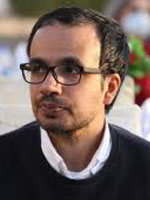 Ahmad Azhar is Assistant Professor at the Department of Social Sciences & Liberal Arts at the IBA, Karachi. He received a PhD in History from the University of Gottingen, Germany, and an MA in History from the School of Oriental & African Studies (SOAS), UK. His prior research focused on the history of labour movements in late colonial Punjab. This research culminated in the monograph, Revolution in Reform: Trade Unionism in Lahore, c. 1919-70, published by Orient Blackswan in 2019. He is presently working on a project that explores the history of initiatives by various leftist-progressive forces of Pakistan to ‘educate’ the working-classes.
Ahmad Azhar is Assistant Professor at the Department of Social Sciences & Liberal Arts at the IBA, Karachi. He received a PhD in History from the University of Gottingen, Germany, and an MA in History from the School of Oriental & African Studies (SOAS), UK. His prior research focused on the history of labour movements in late colonial Punjab. This research culminated in the monograph, Revolution in Reform: Trade Unionism in Lahore, c. 1919-70, published by Orient Blackswan in 2019. He is presently working on a project that explores the history of initiatives by various leftist-progressive forces of Pakistan to ‘educate’ the working-classes.
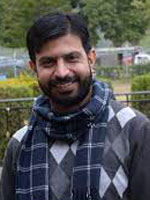 Fakhar Bilal is Assistant Professor at the Department of History, Quaid-i-Azam University (QAU), Islamabad. He gained his PhD in modern South Asian History from Royal Holloway, University of London, and MPhil in History from Quaid-i-Azam University. His doctoral research was on colonial and postcolonial Multan and its development with reference to religious education, religious seminaries, and their impact on society.
Fakhar Bilal is Assistant Professor at the Department of History, Quaid-i-Azam University (QAU), Islamabad. He gained his PhD in modern South Asian History from Royal Holloway, University of London, and MPhil in History from Quaid-i-Azam University. His doctoral research was on colonial and postcolonial Multan and its development with reference to religious education, religious seminaries, and their impact on society.
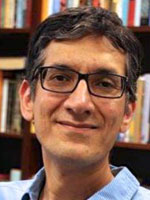 Hasan Haider Karrar is Associate Professor at the Department of Humanities and Social Sciences at the Lahore University of Management Sciences (LUMS). He received his PhD in East Asian Studies, and MA in History, from McGill University, Canada. His ongoing research explores emerging economic and spatial configurations in and between China, Central Asia, and Pakistan. His recent articles have appeared in Globalizations, Central Asian Survey, Critical Asian Studies, and with co-authors in Capitalism, Nature, Socialism and Critical Public Health. His earlier research on the development of Sino-Central Asian relations was published by University of British Columbia Press in 2009 under the title The New Silk Road Diplomacy: China’s Central Asian Foreign Policy Since the Cold War.
Hasan Haider Karrar is Associate Professor at the Department of Humanities and Social Sciences at the Lahore University of Management Sciences (LUMS). He received his PhD in East Asian Studies, and MA in History, from McGill University, Canada. His ongoing research explores emerging economic and spatial configurations in and between China, Central Asia, and Pakistan. His recent articles have appeared in Globalizations, Central Asian Survey, Critical Asian Studies, and with co-authors in Capitalism, Nature, Socialism and Critical Public Health. His earlier research on the development of Sino-Central Asian relations was published by University of British Columbia Press in 2009 under the title The New Silk Road Diplomacy: China’s Central Asian Foreign Policy Since the Cold War.
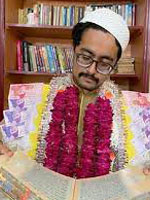 Mohammad Nabeel Jafri is Visiting Lecturer at the Department of Social Sciences & Liberal Arts at the IBA, Karachi, and a PhD candidate at the Department for the Study of Religion at the University of Toronto, Canada. His doctoral research focuses on Urdu Shiʿi oratory (khitabat) in contemporary Karachi, particularly through the theoretical lenses of semiotics, ritual practice, and language use. He is broadly interested in, and qualified to teach on, South Asian Islam, anthropology of language, method and theory in religious studies, and critical secularism studies.
Mohammad Nabeel Jafri is Visiting Lecturer at the Department of Social Sciences & Liberal Arts at the IBA, Karachi, and a PhD candidate at the Department for the Study of Religion at the University of Toronto, Canada. His doctoral research focuses on Urdu Shiʿi oratory (khitabat) in contemporary Karachi, particularly through the theoretical lenses of semiotics, ritual practice, and language use. He is broadly interested in, and qualified to teach on, South Asian Islam, anthropology of language, method and theory in religious studies, and critical secularism studies.
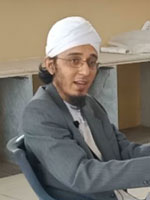 Moiz Hasan is Assistant Professor in the Department of Social Sciences & Liberal Arts at the IBA, Karachi. He received his MA and PhD in the History and Philosophy of Science from the University of Notre Dame, USA, and an ‘alimiyya degree in Islamic and Arabic Studies from Pakistan. His research interests lie in the history and philosophy of science in premodern Islamic societies, Islamic legal theory, and spirituality. His current project includes a monograph on the epistemological foundations of mathematical sciences (including astronomy) in premodern societies. He has earlier edited two volumes on the medieval Central Asian Sufi traditions which introduce Urdu translations of eight Arabic and Persian Sufi treatises, published by Faqir Publications in 2014 and 2015.
Moiz Hasan is Assistant Professor in the Department of Social Sciences & Liberal Arts at the IBA, Karachi. He received his MA and PhD in the History and Philosophy of Science from the University of Notre Dame, USA, and an ‘alimiyya degree in Islamic and Arabic Studies from Pakistan. His research interests lie in the history and philosophy of science in premodern Islamic societies, Islamic legal theory, and spirituality. His current project includes a monograph on the epistemological foundations of mathematical sciences (including astronomy) in premodern societies. He has earlier edited two volumes on the medieval Central Asian Sufi traditions which introduce Urdu translations of eight Arabic and Persian Sufi treatises, published by Faqir Publications in 2014 and 2015.
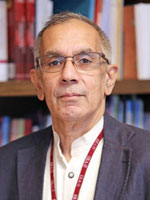 S Akbar Zaidi is Executive Director of the IBA, Karachi. He received his PhD in History from the University of Cambridge. He has taught History and Political Economy as a Professor at Columbia University in the City of New York, where he held a joint position at SIPA (the School of International and Public Affairs), and at MESAAS (the Department of Middle Eastern, South Asian, and African Studies), and at IBA, the University of Karachi, and Johns Hopkins University, USA. His latest book Making Muslims: Reading Publics and Contesting Identities in 19th Century North India was published by Cambridge University Press in 2021.
S Akbar Zaidi is Executive Director of the IBA, Karachi. He received his PhD in History from the University of Cambridge. He has taught History and Political Economy as a Professor at Columbia University in the City of New York, where he held a joint position at SIPA (the School of International and Public Affairs), and at MESAAS (the Department of Middle Eastern, South Asian, and African Studies), and at IBA, the University of Karachi, and Johns Hopkins University, USA. His latest book Making Muslims: Reading Publics and Contesting Identities in 19th Century North India was published by Cambridge University Press in 2021.
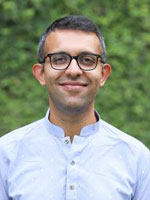 Shayan Rajani is Assistant Professor of History at the Lahore University of Management Sciences (LUMS). He received his PhD in History from Tufts University. He works on early modern Sindh and the Mughal world. His research interests include the study of the individual, region, and gender and sexuality. Recent articles of his on the place of Persian and on conceptions of the self in eighteenth-century Sindh have appeared in the Journal of the Economic and Social History of the Orient and Journal of the Royal Asiatic Society.
Shayan Rajani is Assistant Professor of History at the Lahore University of Management Sciences (LUMS). He received his PhD in History from Tufts University. He works on early modern Sindh and the Mughal world. His research interests include the study of the individual, region, and gender and sexuality. Recent articles of his on the place of Persian and on conceptions of the self in eighteenth-century Sindh have appeared in the Journal of the Economic and Social History of the Orient and Journal of the Royal Asiatic Society.
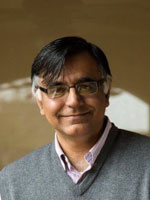 Tahir Kamran heads the Department of Liberal Arts at the Beaconhouse National University (BNU), Lahore, where he is Professor of History. He has a PhD in History from the University of Punjab, and has taught and served at key academic positions in several universities, such as the Government College, Lahore. He is former Allama Iqbal Fellow at the University’s of Cambridge’s Centre for South Asian Studies (CSAS) and has been a Fellow of Wolfson College, University of Cambridge. He is editor of the Pakistan Journal of Historical Studies and director of the Khaldunia Centre for Historical Research. He has published extensively on sectarianism, religious fundamentalism and the state of minorities in Pakistan, and has published several numerous books, translations, and research articles. Among his recent works is Perspectives in Social History of Colonial Punjab (Lahore, 2021) and a co-authored book, Colonial Lahore: History of the City and Beyond, published by the Oxford University Press in 2017. He is very active on issues of higher education in Pakistan.
Tahir Kamran heads the Department of Liberal Arts at the Beaconhouse National University (BNU), Lahore, where he is Professor of History. He has a PhD in History from the University of Punjab, and has taught and served at key academic positions in several universities, such as the Government College, Lahore. He is former Allama Iqbal Fellow at the University’s of Cambridge’s Centre for South Asian Studies (CSAS) and has been a Fellow of Wolfson College, University of Cambridge. He is editor of the Pakistan Journal of Historical Studies and director of the Khaldunia Centre for Historical Research. He has published extensively on sectarianism, religious fundamentalism and the state of minorities in Pakistan, and has published several numerous books, translations, and research articles. Among his recent works is Perspectives in Social History of Colonial Punjab (Lahore, 2021) and a co-authored book, Colonial Lahore: History of the City and Beyond, published by the Oxford University Press in 2017. He is very active on issues of higher education in Pakistan.
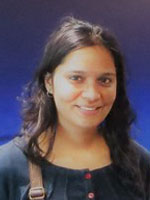 Zahra Sabri is Lecturer in Indo-Islamic History and Urdu Literature at the Department of Social Sciences & Liberal Arts at the IBA, Karachi. She received her MA degree from the Department of Middle Eastern, South Asian, and African Studies (MESAAS) at Columbia University in the City of New York. She has taught History and Urdu Literature at McGill University, Canada, the Aga Khan University, Pakistan, and the University of Karachi’s Pakistan Study Centre. Her research focuses on Mughal History, and the influence of the Persianate on Indo-Muslim languages, cultures, and traditions of learning, as well as politics of identity centred around Urdu in South Asia. Her most recent academic publication is an article on the Mughal poet Mir Taqi Mir’s Persian hagiographical/historiographical writing, published in The Medieval History Journal.
Zahra Sabri is Lecturer in Indo-Islamic History and Urdu Literature at the Department of Social Sciences & Liberal Arts at the IBA, Karachi. She received her MA degree from the Department of Middle Eastern, South Asian, and African Studies (MESAAS) at Columbia University in the City of New York. She has taught History and Urdu Literature at McGill University, Canada, the Aga Khan University, Pakistan, and the University of Karachi’s Pakistan Study Centre. Her research focuses on Mughal History, and the influence of the Persianate on Indo-Muslim languages, cultures, and traditions of learning, as well as politics of identity centred around Urdu in South Asia. Her most recent academic publication is an article on the Mughal poet Mir Taqi Mir’s Persian hagiographical/historiographical writing, published in The Medieval History Journal.
Moderators
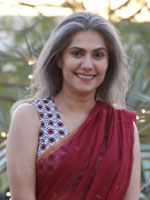 Aliya Iqbal-Naqvi is Lecturer at the Department of Social Sciences & Liberal Arts at the IBA, Karachi, where she teaches courses on modern and pre-modern South Asian History, and has developed the final-year undergraduate thesis program. She received her BA degree and MA degrees in Histories and Cultures of Muslim Societies from the Department of Near Eastern Languages and Civilizations at Harvard University, USA, where she is currently also pursuing her PhD. Her research interests broadly encompass South Asian Studies & Islamic Studies, with a focus on Perso-Islamic Intellectual History. She has co-published an article on the shrine of Shahbaz Qalandar in the South Asian Studies journal Dastavezi, and collaborated on a book on African Muslims in South Asia by Jurgen Wasim Frembgen (Africa World Press, forthcoming). Deeply interested in developing locally contextualised Humanities teaching at universities in Pakistan, she previously headed the Liberal Arts programme at the Indus Valley School of Art and Architecture, Karachi.
Aliya Iqbal-Naqvi is Lecturer at the Department of Social Sciences & Liberal Arts at the IBA, Karachi, where she teaches courses on modern and pre-modern South Asian History, and has developed the final-year undergraduate thesis program. She received her BA degree and MA degrees in Histories and Cultures of Muslim Societies from the Department of Near Eastern Languages and Civilizations at Harvard University, USA, where she is currently also pursuing her PhD. Her research interests broadly encompass South Asian Studies & Islamic Studies, with a focus on Perso-Islamic Intellectual History. She has co-published an article on the shrine of Shahbaz Qalandar in the South Asian Studies journal Dastavezi, and collaborated on a book on African Muslims in South Asia by Jurgen Wasim Frembgen (Africa World Press, forthcoming). Deeply interested in developing locally contextualised Humanities teaching at universities in Pakistan, she previously headed the Liberal Arts programme at the Indus Valley School of Art and Architecture, Karachi.
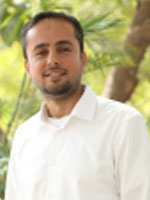 Sajjad Ahmad is Lecturer in the Department of Social Sciences and Liberal Arts at the IBA, Karachi, where he teaches Political Science and History. He received his MA in International Relations from the University of Karachi, and is currently pursuing his PhD at the Department of Comparative Religion at Comenius University in Bratislava, Slovakia. His research focuses on the region of Gilgit-Baltistan, and he has a monograph on this topic titled The Gilgit-Baltistan Conundrum: Dilemmas of Political Integration, published by the Institute of Historical & Social Research, Karachi, in 2020. He is Network Manager for the Climate Change and Urban Violence Global Engagement Network at the Karachi Urban Lab.
Sajjad Ahmad is Lecturer in the Department of Social Sciences and Liberal Arts at the IBA, Karachi, where he teaches Political Science and History. He received his MA in International Relations from the University of Karachi, and is currently pursuing his PhD at the Department of Comparative Religion at Comenius University in Bratislava, Slovakia. His research focuses on the region of Gilgit-Baltistan, and he has a monograph on this topic titled The Gilgit-Baltistan Conundrum: Dilemmas of Political Integration, published by the Institute of Historical & Social Research, Karachi, in 2020. He is Network Manager for the Climate Change and Urban Violence Global Engagement Network at the Karachi Urban Lab.
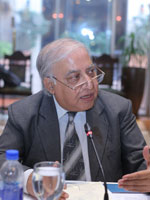 Syed Jaffar Ahmed is Visiting Faculty at the Department of Social Sciences & Liberal Arts at the IBA, Karachi, where he teaches courses on Pakistan’s history and is also on the university’s Board of Governors. He gained his PhD in Politics from the University of Cambridge, UK, and his BA and MA degrees in Political Science from the University of Karachi. Among the numerous books on history, politics, and literature he has written and edited over the years is a special volume, dedicated to the historian Mubarak Ali, titled Challenges of History Writing in South Asia, published in 2013. He is Dean of the Faculty of Social Sciences, Sohail University, Karachi, and Director of the Institute of Historical and Social Research, Karachi. He is former Director of the Pakistan Study Centre, University of Karachi, former President of the Irtiqa Institute of Social Sciences, and Vice-President of the Institute of Central and West Asian Studies, University of Karachi. His broad area of research is human rights, federalism, constitutional reform, and democratisation in Pakistan.
Syed Jaffar Ahmed is Visiting Faculty at the Department of Social Sciences & Liberal Arts at the IBA, Karachi, where he teaches courses on Pakistan’s history and is also on the university’s Board of Governors. He gained his PhD in Politics from the University of Cambridge, UK, and his BA and MA degrees in Political Science from the University of Karachi. Among the numerous books on history, politics, and literature he has written and edited over the years is a special volume, dedicated to the historian Mubarak Ali, titled Challenges of History Writing in South Asia, published in 2013. He is Dean of the Faculty of Social Sciences, Sohail University, Karachi, and Director of the Institute of Historical and Social Research, Karachi. He is former Director of the Pakistan Study Centre, University of Karachi, former President of the Irtiqa Institute of Social Sciences, and Vice-President of the Institute of Central and West Asian Studies, University of Karachi. His broad area of research is human rights, federalism, constitutional reform, and democratisation in Pakistan.
Keynote Speaker

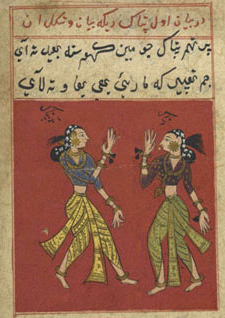
Katherine Butler Schofield is a historian of music and listening in Mughal South Asia and the paracolonial Indian Ocean, and a Senior Lecturer at King's College London. Her new monograph Music and Musicians in Late Mughal India: Histories of the Ephemeral, 1748–1858 will be published in 2022 by Cambridge University Press. This book grew out her 2018 British Academy Mid-Career Fellowship presenting a series of public lectures and conversations at the British Library, and a set of podcasts, Histories of the Ephemeral: Writing on Music in Late Mughal India available via Soundcloud https://soundcloud.com/user-513302522. Dr Schofield's first book, an edited volume with Francesca Orsini, Tellings and Texts: Music, Literature, and Performance in North India, was published in 2015 by Open Book Press. Her second book, Monsoon Feelings: A History of Emotions in the Rain, edited with Imke Rajamani and Margrit Pernau, was published by Niyogi Books in 2018.
In 2011–16 she was Principal Investigator of a €1.18M European Research Council grant, "Musical Transitions to European Colonialism in the Eastern Indian Ocean", which examined the history of transitions from pre-colonial to colonial musical fields in India and the Malay world c. 1750-1900 through multilingual, intermedial, and stereophonic research methods. Dr Schofield continues to curate the SHAMSA database funded through this grant, which describes well over 300 major written sources c. 1700–1900 for the history and analysis of Hindustani music and dance in Mughal and British-colonial South Asia. The SHAMSA digital collection already constitutes the largest single repository of primary written sources on Indian music and dance in the world, and is available here: https://zenodo.org/record/1445775
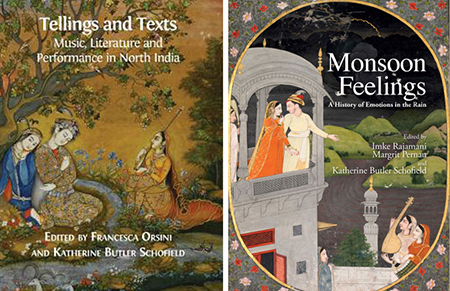
Dr Schofield originally trained as a viola player, before embarking on her doctoral work at SOAS University of London in the cultural history of Hindustani music, followed by a research fellowship at Corpus Christi College, Cambridge, and a lectureship at Leeds. Her research interests lie generally in the areas of South Asian music, the history of Mughal South Asia (1526-1858), Islam, empire, and the intersecting histories of the emotions, the senses, aesthetics, ethics, and the supernatural. Working largely with Persian, and latterly Urdu, sources for Hindustani music c.1570-1860, in recent work she has established music as central to Mughal technologies of sovereignty and selfhood, identified classicisation processes at work in early-modern South Asian arts, located the relationship of ragamala paintings to their melodic inspirations in shared notions of power, told tales about ill-fated courtesans and legendary ustads, and traced the lineage of the chief musicians to the Mughal emperors from Akbar to Bahadur Shah Zafar.
Most recently Dr Schofield has turned her attention to advocacy for Aghanistan's musicians, whose livelihoods and exquisite musical heritage are under severe threat from the Taliban. She is external lead for the International Campaign For Afghanistan's Musicians; you can find out more from their website: https://www.icfam.info